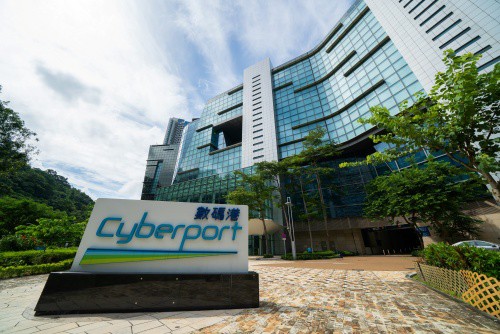More than 30 projects from over 20 Cyberport start-ups have been awarded subsidies totalling around HK$15 million under the "Subsidy Scheme for Encouraging Early Deployment of 5G" launched by the Hong Kong government.
Several of these projects involved the adoption of Internet of Things in the development of new applications both for business and for leisure.
"We are glad to see that many Cyberport start-ups grasped the opportunities presented by 5G technology to develop cutting-edge applications. We support start-ups in the development, testing and launch of their 5G solutions by utilising our infrastructure, as well as the Cyberport's Partner Networks,” said Eric Chan, chief public mission officer at Cyberport.
Early this month, the Hong Kong government doubled the funding for the Subsidy Scheme for Encouraging Early Deployment of 5G from HK$50 million to HK$100 million, as well as extended the application deadline for the scheme to July 30, 2021.
Chan said Cyberport welcomes this move and “will continue to encourage the application of the startup community and build a smarter city together”.
Following the widespread coverage of 5G networks, Cyberport has been playing an active role in supporting community start-ups to develop innovative solutions using 5G technologies.
To enhance the lifestyle experience and business applications in the city, Cyberport is also coordinating with a number of telecom operators and enterprises to provide opportunities for the commercialisation of the 5G solutions .
To date, many projects from the Cyberport startup community that applied for the scheme involves the coupling of 5G and IoT technology.
Some of them are:
- Formula Square, a digital entertainment start-up, has leveraged the ultra-high-speed and low latency of 5G to take virtual car racing to the next level. 5G network allows players to watch high-resolution visuals captured by the camera of 1/10 RC vehicle on a real-time basis, which allows them to control the vehicles remotely in driving simulators with realistic racing experience. This also enables racers from different locations to compete in the same racetrack.
- Wada Bento, another Cyberport start-up, focusing on the development and operation of bento vending machines, has used 5G technologies to adopt remote management of the machines, which makes early alert of malfunctioning and fast repairing possible, and reduces maintenance costs while enhancing customer experience.
- Carbon World, a green technology company, to upgrade its self-developed PET bottle recycling machines which can now identify different bottles within 5 seconds instead of 20. The new technology has also made real-time machine inspections possible. Such advancements have made recycling more efficient and encouraged citizens to "go green" in everyday life.
- Cyberport start-up Ark Space has developed a unique 5G-based smart glasses software system. High-resolution visuals captured by the built-in camera of the glasses will be transmitted to backstage engineers and maintenance staff in real time for more accurate instructions from a perspective of frontline personnel.
- Another start-up SyZyGy has developed a movable video display box that adopts 5G technologies to conduct live streaming of 1:1 holographic videos under different settings. This not only extends the mixed reality experience of the event industry to outdoor venues, but also paves way for brand displays in shopping malls and shops.
- In addition, Unissoft has leveraged 5G's edge computing feature to transmit 4K camera videos with 5G signals. The videos are not only uploaded for cloud-based storage, but also sent to nEdge, its locally-deployed edge equipment product, for real-time analysis and alert onsite management staff earlier to prevent accidents.
- MAD Gaze, a local supplier of smart glasses, adopted the maturing 5G technologies to develop innovative applications in different industries, including interactive learning. Using specially designed applications, teachers can prepare dynamic course content for students equipped with smart glasses to learn from AR teaching materials. Coupled with classroom teaching, the interaction between teachers and students will be significantly enhanced to deepen learning experience and efficiency. 5G supports high speed transmission and fast processing of large amount of data and low latency. The combination of 5G and AR computing can strengthen the interaction offered by AR teaching materials to improve the quality of presentations.
With an aim to help start-ups save development costs, Cyberport offers a testing environment with 5G network in its campus area. 5G development kits, including 5G SIM cards, receivers and other necessary equipment, are available for rent to enable new technology applications in different areas.



